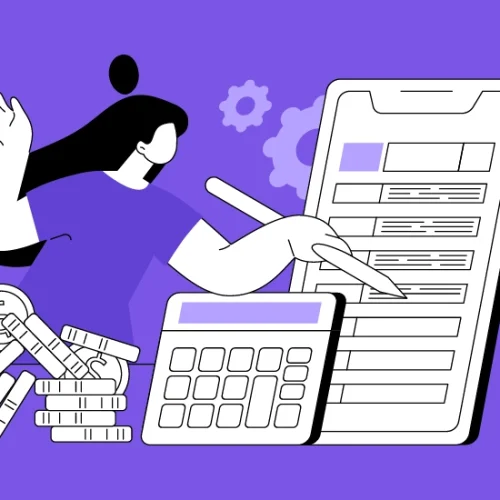Indian finance has undergone a transformation thanks to technology. Nowadays, electronic transactions are superior to traditional billing methods.
So, one thing is for sure, the present and future of invoicing is e-invoicing. There are many benefits of electronic invoicing over PDF emails and conventional paper invoices. Even though e-invoicing has some drawbacks, overall, the benefits much outweigh the drawbacks.
The government of India has declared the fifth phase of mandatory implementation of E-invoicing for businesses with an annual turnover exceeding Rs. 10 Crore from 1st October 2022. The sixth phase for businesses with an annual turnover exceeding Rs. 5 Crore which was set to be implemented from 1st January 2023 to be is yet to be notified.
Now, What is E-invoicing?
In India, electronic invoicing, also known as e-invoicing, is a procedure in which B2B invoices are digitally posted to a portal where they are authenticated by the GSTN or Goods and Services Tax Network. An IRN, or Invoice Reference Number and a special QR code are generated for each generated e-invoice. The goal of the implementation of e-invoicing is to ensure that all Indian firms across various industries utilise a standard format, making integration easier. Additionally, it guarantees that all businesses will comply, resulting in cost savings, enhanced efficiency, and increased accuracy.
Some Major Benefits of E-invoicing include
Cost saving
One of the main benefits of electronic invoicing for small businesses is cost savings. Printing and mailing paper invoices can be costly, especially for businesses that send a large volume of invoices each month. Digital invoicing eliminates the need for paper, ink, and postage, which can result in significant cost savings for small businesses. This can help small businesses to redirect the resources saved to other areas of the business.
Ease of financial operation
One advantage of e-invoicing is its efficiency in financial operations. Electronic invoicing has made economic transactions much simpler and clearer than they were previously, especially for SMEs. Because these organisations frequently have a heavier burden and must balance several components, it provides ease by reducing administrative time. A cloud-based accounting software like GenieBooks has made it simpler for companies to create e-invoices quickly.
Data security
One of the key benefits of e-invoicing for businesses is that it ensures data protection. Before, invoices were not secure, and there was a greater risk of tax leakage and forgery. Some businesses engaged in unethical behaviour by using phoney invoices. The likelihood of fraud has considerably reduced since e-invoicing was introduced because it is impossible to create and submit a false invoice. All electronically generated invoices are authenticated, ensuring the integrity and security of the data.
Increased efficiency
E-invoicing allows businesses to send and receive invoices quickly and easily, without the need for mailing or faxing. This can save a lot of time and hassle, especially for small businesses with limited resources. Additionally, e-invoicing allows businesses to track and manage invoices more effectively, reducing the risk of late payments or lost invoices. This can also help businesses to better manage their cash flow and improve their financial forecasting.
Improved accuracy
Electronic invoicing eliminates the need for manual data entry, which can reduce the risk of errors. Additionally, e-invoicing can be integrated with accounting software, which can automatically update financial records and reduce the risk of errors in accounting. This also ensures that financial reports are accurate and up-to-date, which can help businesses make more informed decisions.
Better cash flow management
E-invoicing can speed up the payment process, allowing small businesses to receive payments more quickly and easily. This can improve cash flow and help small businesses to better manage their finances. Additionally, electronic invoicing can help businesses identify and collect outstanding payments, which can help improve cash flow.
Better Compliance
E-invoicing ensures compliance with various regulations, as electronic invoices can be easily stored and accessed for audits. This can help businesses to avoid penalties and fines for non-compliance.
Accessibility
Electronic invoicing allows for easy access to invoices, regardless of location and time, which can be beneficial for businesses with remote teams or international clients. This can also help businesses to better manage their client relationships and provide better customer service.
Better customer relationship management
E-invoicing also allows for better communication between businesses and customers, as businesses can easily send invoices, receive payments and provide updates on the status of an invoice. This can also help businesses to resolve any billing disputes quickly and efficiently. Additionally, electronic invoicing can also help businesses to personalize invoices and communicate with customers in a more efficient manner.
Takeaway
In summary, e-invoicing offers many benefits for small businesses, including cost savings, increased efficiency, improved accuracy, better cash flow management, eco-friendly, compliance, accessibility, and better customer relationship management. E-invoicing can help small businesses to streamline their billing process and improve their financial management.





